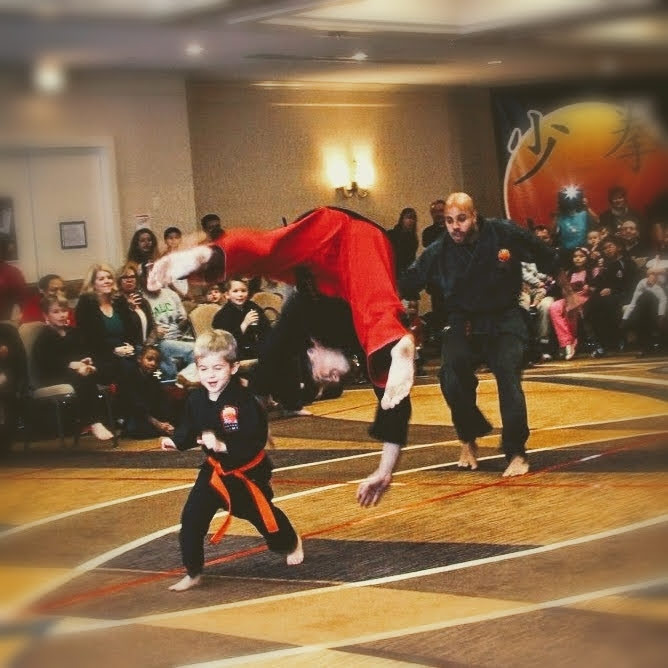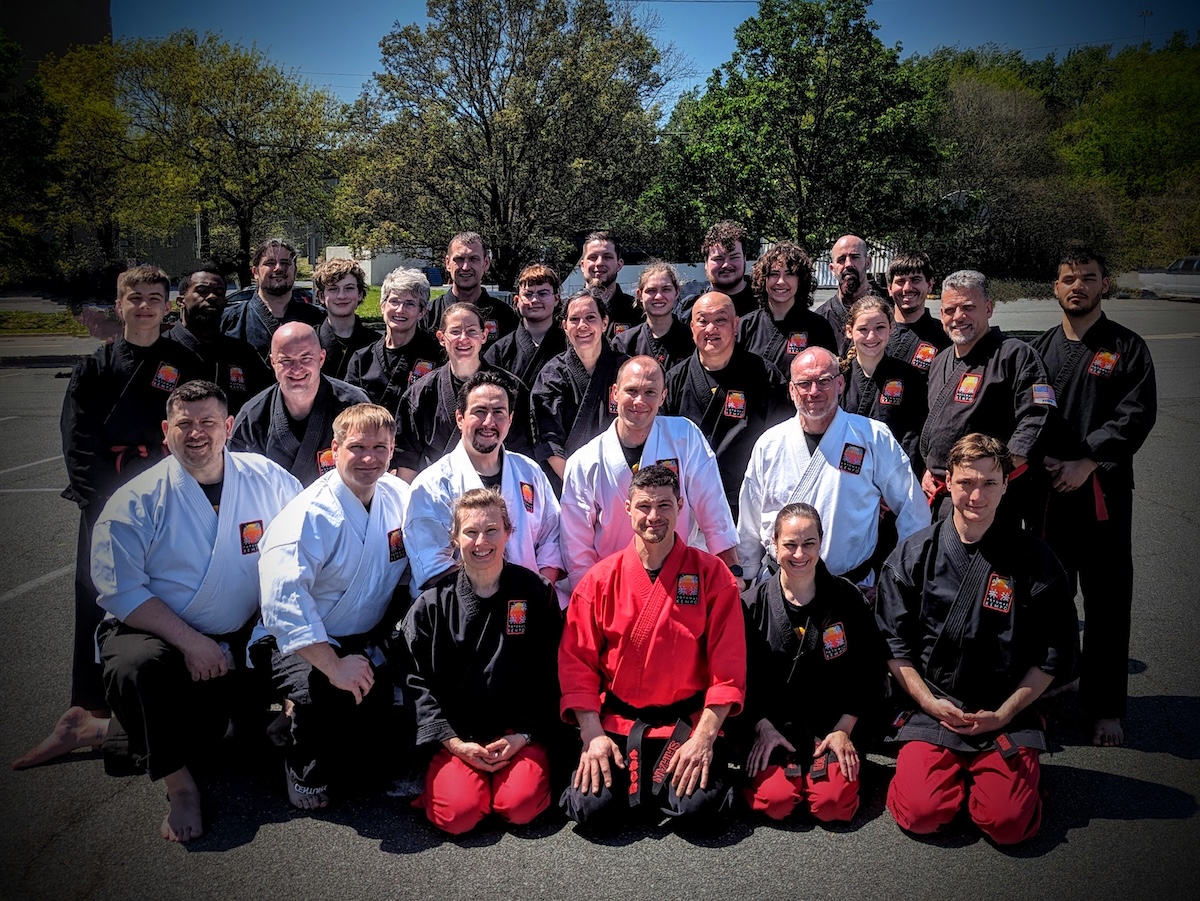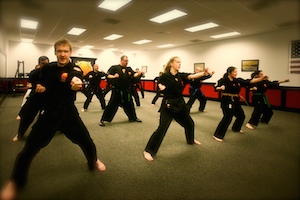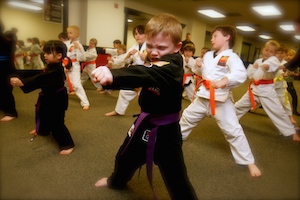What do you think about as you fall headfirst towards the ground?
Or, more to the point, what should you think about?
If the surface is pavement or gravel?
Should you tense for impact?
No, obviously, you should just relax.
In the case of falling, as in so many instances, our instincts are flawed. If you are falling towards the Earth, you should not tense for impact. Instead, relax and roll with it. Fall intentionally. There is no guarantee that you won’t be injured, but rolling with a fall will minimize its impact. And make no mistake, it is a skill best practiced in advance.
And so we practice, class after class. In the dojo and hopefully at home too, we practice falling and rolling forward, backward, to the side, with a twist, with only one leg, blindfolded, and while holding a glass of water. We practice these skills so that when we find ourselves heading towards the ground more precipitously than intended, we can bring ourselves to rest safely.
It might be worth noting that, despite our martial framework, in life we are much more likely to fall towards the ground for a banal reason than as the result of an attack. We sometimes stumble over a curb, trip amidst a friendly game of soccer, jump over one of our children, or comically slip on a banana peel. But falling is falling whether someone threw you down or you fell of your own accord. Relaxing and going with energy is always the best way to prevent or minimize injury.
Let’s go further. As is so often the case when discussing martial principles, I am compelled to find the broader application of a particular practice.
In this instance, we can consider the ground to be a difficulty, obstacle, or challenge. We are so often tempted to tense as life’s little speed-bumps come hurtling towards us. But that seldom does us any real good, and much more often does us actual harm. When we become rigid in preparation for conflict, we are bracing for when and where we believe we will take the brunt of the impact. But life—and rolls—are seldom like that.
We often like to rehearse important conversations in our head, maybe asking for a promotion, requesting a grade be revised, or discussing a political position. But to the extent that we believe we have structured the conversation in advance, we have degraded our ability to feel the conversation as it unfolds and respond appropriately in real-time.
If we’re nervous about anticipated pain—perhaps getting an injection—your tension will make the pain worse by double. Tensing a muscle causes the needle to cut more fibers, not fewer. Here, as in so many instances, we are best served by breathing and relaxing. It’ll only last for a moment.
Inevitably the real force that we encounter is from a slightly different place, time, or direction than we anticipated. And stay with me—this is the whole point—to the extent that we brace for one kind of impact, we make ourselves more vulnerable for all others.
As we tumble to the ground, we may believe that we know precisely when we will hit, at what angle, and how much the ground will—or won’t—give. We’re never quite right.
Instead, our best bet is to feel the impact and relax around it—exhaling and dynamically structuring our bodies in a slowly expanding curve while tucking in our pointy bits.
No conversation will ever go as planned, and no two will ever be the same. In the same way, no fall will ever go as you anticipate, and the ground will never be the same twice.
So relax.






